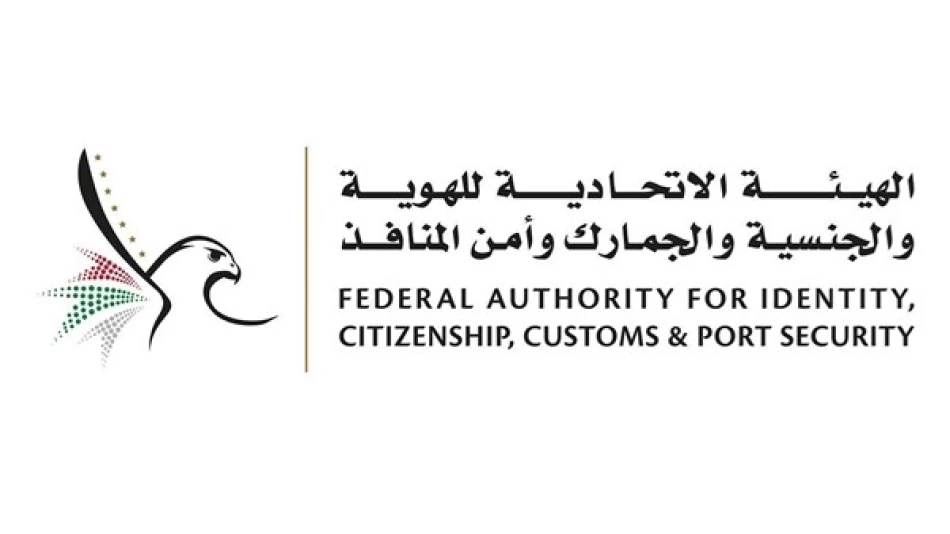
Identity and Nationality Authority Warns Against Misleading Online Accounts
UAE Immigration Authority Cracks Down on Social Media Scams Targeting Visa Applicants
The UAE's Federal Authority for Identity, Citizenship, Customs and Port Security has issued a stark warning against fraudulent companies exploiting social media platforms to deceive visa applicants with promises of faster processing and reduced requirements. This crackdown signals the Emirates' growing concern over digital fraud undermining its streamlined immigration system and potentially creating security vulnerabilities.
The Scope of the Problem
Unauthorized agencies are flooding social media platforms and websites with misleading advertisements, claiming they can expedite government services that normally go through official channels. These operators target three key demographics: UAE citizens seeking document services, residents requiring visa renewals or modifications, and international visitors applying for entry permits.
The scam typically involves promises to bypass standard requirements and accelerate processing times in exchange for inflated fees. What makes this particularly concerning is that these fraudulent services create the illusion of legitimacy while operating entirely outside the legal framework.
Why This Matters for UAE's Digital Transformation
The UAE has invested heavily in digitizing government services, with immigration and identity services being cornerstone achievements of this initiative. The country's official digital platforms and smart applications were designed to eliminate the need for intermediaries, making these fraudulent operations particularly damaging to the system's credibility.
This fraud wave threatens to undermine the UAE's reputation as a tech-forward nation where bureaucratic processes are genuinely streamlined. For a country that positions itself as a global business hub, maintaining trust in official digital channels is crucial for attracting international talent and investment.
Security and Economic Implications
Creating Dangerous Vulnerabilities
The authority highlighted that these unauthorized operations create security gaps in what should be a tightly controlled immigration system. When fraudulent operators claim to bypass standard verification procedures, they potentially compromise the integrity of the entire visa and residency framework.
Fueling an Underground Economy
Perhaps most concerning is the authority's warning about these scams fostering a "black market" that threatens fairness and transparency in service delivery. This underground economy not only cheats individual applicants but also creates an uneven playing field where those who pay inflated fees to scammers believe they're gaining an advantage over those using legitimate channels.
The Official Response Strategy
The Federal Authority emphasized that it provides services through simplified procedures via official channels only, including its website, smart applications, and authorized service centers. Importantly, the authority stated it has granted no special privileges to any private companies claiming to offer expedited services.
The government is now actively monitoring these suspicious activities and preparing legal action in coordination with relevant law enforcement agencies. This represents a shift from passive warnings to active enforcement, suggesting the problem has reached a scale that demands intervention.
Broader Context: A Regional Challenge
This crackdown reflects a wider challenge facing Gulf states as they digitize government services. Similar issues have emerged in Saudi Arabia and Qatar as these nations modernize their visa and residency systems. The UAE's proactive stance may serve as a model for regional cooperation on combating cross-border digital fraud.
The timing is particularly significant as the UAE continues to attract record numbers of new residents and investors, making immigration services a high-value target for fraudsters. With the country's population growth strategy dependent on attracting global talent, maintaining trust in official processes becomes even more critical.
What This Means Going Forward
This enforcement action likely signals the beginning of a broader campaign to protect the UAE's digital government infrastructure. For legitimate applicants, this should ultimately mean greater confidence in official channels and potentially faster processing as resources aren't diverted to dealing with fraud-related complications.
The success of this crackdown will depend on the authority's ability to quickly identify and shut down fraudulent operations while educating the public about official channels. Given the UAE's track record with digital initiatives, this challenge may well become a case study in protecting government digital transformation from exploitation.
Most Viewed News

 Layla Al Mansoori
Layla Al Mansoori






